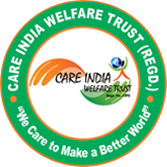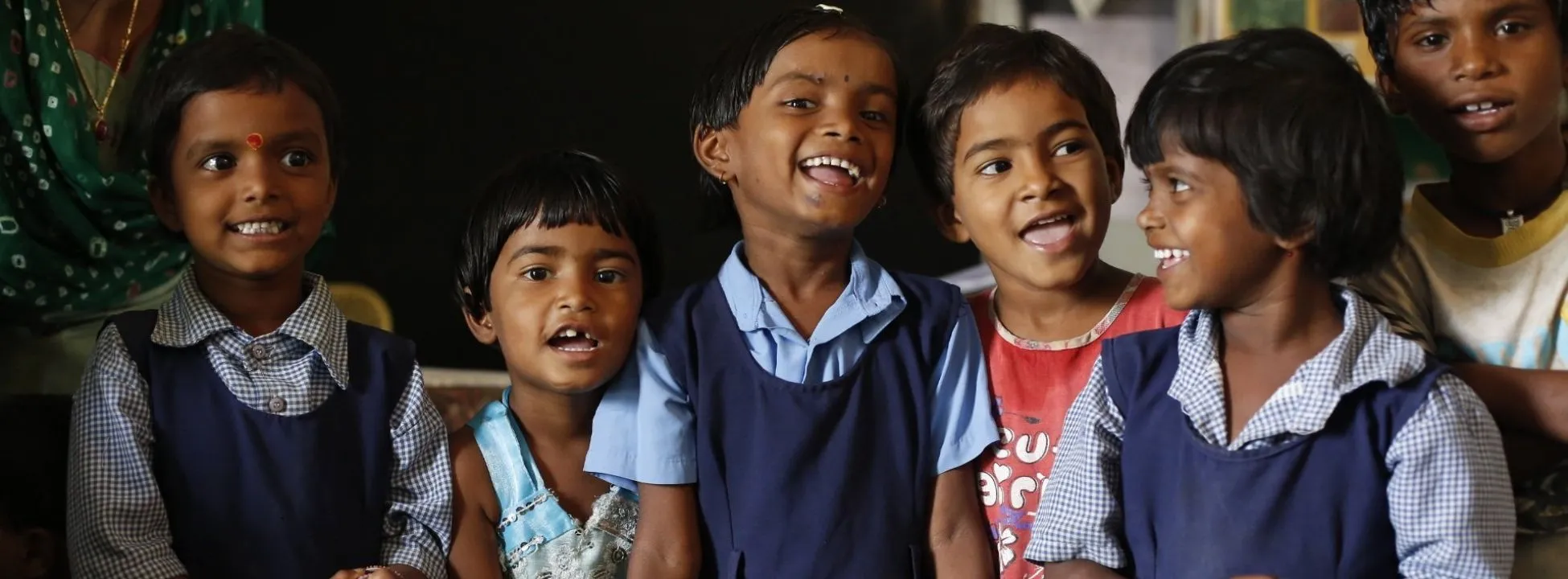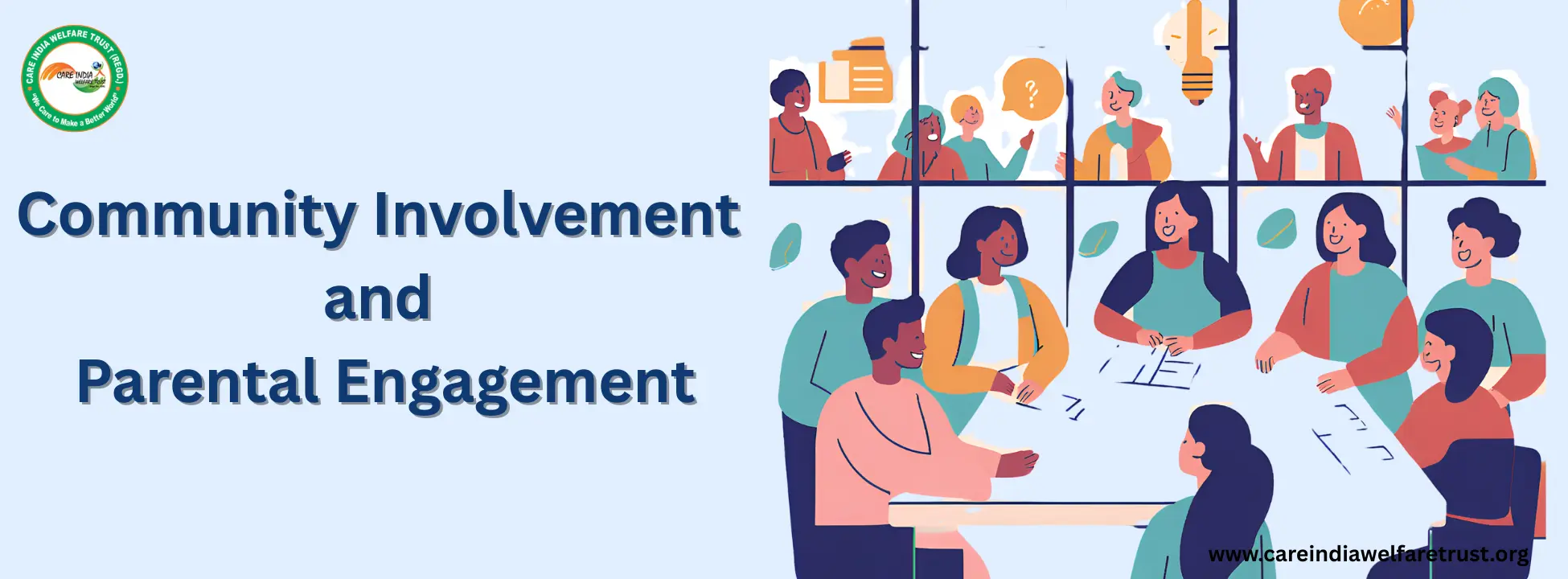Understanding the Importance of ECCE in Underserved Areas
For children ages 0 to 6, early childhood care and education, or ECCE, is crucial to their overall development. It establishes the groundwork for lifelong learning, behavior, and health. However, poverty, ignorance, poor infrastructure, and a lack of government backing sometimes restrict access to high-quality ECCE in underserved areas.
Numerous issues affect children in these regions, including inadequate nutrition, a lack of stimulation, and restricted access to educational settings. They frequently begin school at a disadvantage and find it difficult to catch up with their peers if they do not receive early education. Their academic performance and prospects for the future are impacted when this learning gap grows.
In underprivileged communities, early childhood education and care (ECCE) fosters social skills, emotional health, and cognitive development in addition to preparing kids for formal schooling. Communities can empower families, break the cycle of poverty, and give every kid a fair start in life, regardless of their circumstances or background, by offering comprehensive and reasonably priced early education.
How NGOs Bridge Gaps in Early Education Access
Children in many underprivileged neighborhoods lose out on early education because of a lack of schools, parental ignorance, and poverty. NGOs can be a powerful support structure in this situation. They strive to provide high-quality early childhood education (ECCE) to children who are most in need at the local level.
In places where government services are few, such as slums, rural areas, and tribal territories, non-governmental organizations establish preschools and learning centers. They design vibrant, secure, and entertaining learning environments that appeal to young children. These facilities make education affordable for low-income families by providing it for free or extremely low cost.
To ensure that kids learn in a comfortable and familiar setting, NGOs also concentrate on educating local educators and caregivers. To promote children's overall growth, they offer toys, literature, wholesome food, and basic medical care.
NGOs raise awareness of the value of early education by collaborating directly with communities and parents. Through education, love, and care, they make sure that every child, regardless of where they reside, has a good start in life.
Also Read: STEM vs Traditional Education: What’s the Difference?
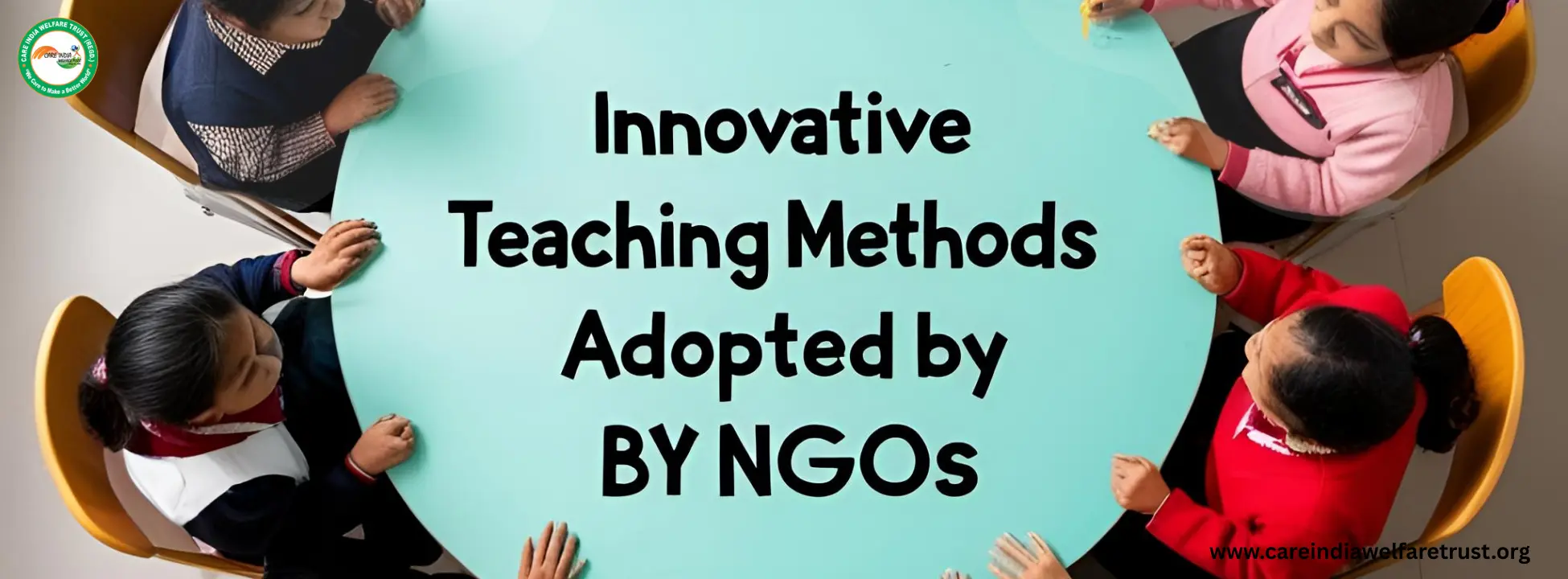
Innovative Teaching Methods Adopted by NGOs
NGOs that operate in underprivileged areas make early education enjoyable, significant, and successful by utilizing innovative and kid-friendly teaching strategies. These are a few of their most effective and simple techniques:
Play-Based Learning: Play is the best way for kids to learn. NGOs teach numbers, alphabet, shapes, and colors using games, toys, and role-playing exercises. This approach keeps kids interested and motivated to learn.
Storytelling: Stories foster children's imagination, help them grasp moral principles, and enhance their language abilities. To bring learning to life, NGOs frequently employ puppets, picture books, and regional folktales.
Songs and Rhymes: Children can better retain ideas like the alphabet, the days of the week, or positive behaviors by listening to educational songs and rhymes. Additionally, music fosters the development of language and rhythm.
Art and Craft Activities: Coloring, drawing, and crafting enhance motor abilities and creativity. NGOs make learning interactive and enjoyable by using inexpensive resources.
Sensory Play: By allowing kids to explore through touch, smell, and sight, activities like sand play, water games, and clay modeling promote brain development.
Learning Through Nature: To give their lessons a more practical application, non-governmental organizations bring kids outside to study flora, animals, and seasons.
All youngsters may learn in a fun and accessible way thanks to these creative approaches.
Training and Empowering Local Educators
Training and empowering local educators is one of the most effective strategies to enhance early childhood education in underprivileged communities. Since they have a significant impact on the development of young brains, these teachers constitute the foundation of any community-based education program.
NGOs help local educators and caregivers acquire critical skills and information about classroom management, teaching methods, and child development by offering training. This training is particularly crucial in places with limited formal education pathways or a shortage of professional teachers.
Giving local educators the self-assurance to use innovative and successful teaching strategies, such as play-based learning and interactive exercises, is another aspect of empowering them. These techniques are essential for young children because they foster social skills, curiosity, and problem-solving abilities in an entertaining and captivating manner.
Furthermore, the impact is amplified when locals receive training to educate their communities. It guarantees that education is culturally appropriate, gives women employment possibilities, and fosters a feeling of community responsibility. Teachers can truly impact the lives of the children they teach because they have a thorough awareness of the needs of the community.
A crucial first step toward long-term, sustainable improvements in early childhood education is this investment in regional teachers. Supporting such efforts through donation for poor child education can further strengthen these programs and help create a brighter future for children in need.
Community Involvement and Parental Engagement
The success of Early Childhood Care and Education (ECCE) programs, particularly in underprivileged regions, depends on family and community involvement. Children gain from a more robust support network at home and at school when parents and communities take an active role.
ECCE programs educate parents on the value of early learning and development by involving them. Little things like reading to kids, promoting play, and talking about everyday routines can have a significant impact. When parents recognize the importance of education and learn how to foster their child's development, they are more likely to support it.
Incorporating local populations into the process also guarantees that the program is culturally appropriate and meets particular local requirements. Volunteers, resource sharing, and fostering a warm and secure atmosphere for kids are all possible through community members. Collaboration among parents, educators, and community leaders fosters a pleasant, cooperative environment that benefits the children and the community as a whole.
NGO Partnerships with Government and Private Sectors
In underprivileged communities, NGOs play a vital role in improving Early Childhood Care and Education (ECCE). One of the most effective ways to enhance their reach and impact is by forming strategic collaborations with the public and private sectors. These partnerships not only bring in much-needed support but also strengthen the overall ecosystem for early childhood development.
- Funding and Resource Access: Collaborations with government bodies and private companies help NGOs access steady funding, which is crucial for running and scaling ECCE programs. With better financial backing, NGOs can invest in improved infrastructure, such as safe classrooms, sanitation facilities, and age-appropriate learning materials. Private sector involvement through Corporate Social Responsibility (CSR) initiatives also opens avenues for innovation in education delivery.
- Increased Scale and Reach: Government partnerships allow NGOs to extend their services to more remote and underserved areas. By aligning with government schemes, NGOs can integrate their efforts into broader national or state-level education missions, ensuring that no child is left behind.
- Technical and Policy Support: Public and private sector partners often bring specialized knowledge in curriculum design, monitoring, teacher training, and policy development. This expertise helps NGOs create more structured, efficient, and impactful ECCE programs. Moreover, integration with social welfare services ensures children receive holistic care, including nutrition and health check-ups.
Sustainability and Long-Term Impact: These partnerships create a foundation for long-term program sustainability. By embedding ECCE efforts within government systems and corporate strategies, NGOs can ensure their work continues to benefit future generations.
Ultimately, such collaborations empower NGOs to deliver quality education and transform the lives of children in marginalized communities.
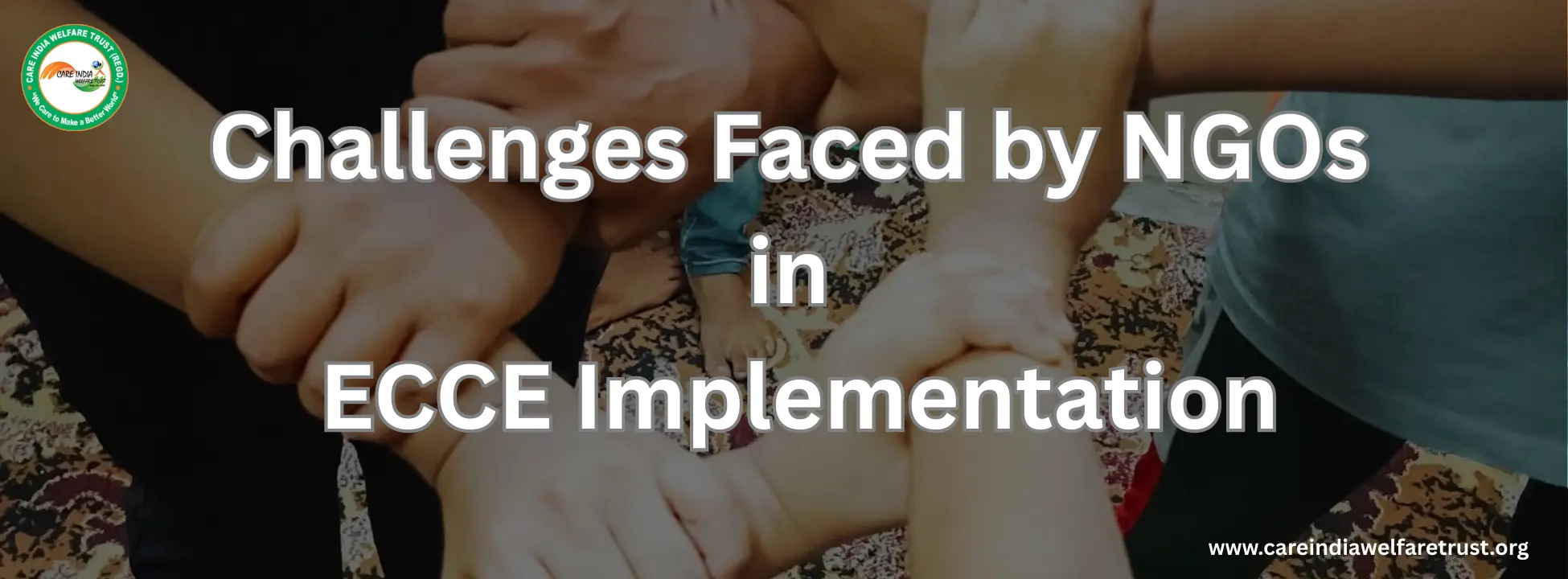
Challenges Faced by NGOs in ECCE Implementation
Although NGOs play a critical role in delivering Early Childhood Care and Education (ECCE) in underprivileged communities, they face several significant challenges that can hinder the effectiveness and sustainability of their efforts.
- Restricted Resources: A major challenge is the lack of consistent and adequate funding. Most NGOs rely heavily on grants, public donations, or corporate social responsibility (CSR) contributions. These sources are often limited and unpredictable, making it difficult to maintain ongoing ECCE programs. Financial constraints can lead to delays in launching projects, limited scalability, and even the discontinuation of essential initiatives.
- Insufficient Infrastructure: In rural and remote areas, creating a safe and stimulating learning environment is a persistent issue. These regions often lack basic amenities like electricity, clean drinking water, sanitation facilities, and proper classrooms. Without this infrastructure, it becomes difficult to foster an environment conducive to early learning and child development.
- Lack of Trained Teachers: Quality education hinges on qualified educators, but many NGOs struggle to find and retain well-trained ECCE teachers. In underserved areas, the shortage of skilled professionals is even more pronounced. Many educators lack formal training or the resources to engage in professional development, leading to compromised learning experiences for children.
- Cultural & Social Barriers: Deep-rooted cultural beliefs and social norms often prevent children, especially girls, from accessing education. Some communities may not recognize the value of early education, requiring NGOs to invest in community awareness and engagement programs to shift mindsets.
- Logistical Issues: Operating in isolated areas means NGO working for education regularly encounter logistical difficulties, including poor transportation, lack of communication infrastructure, and delayed access to teaching materials and support services.
Despite these hurdles, NGO for education continue to innovate and adapt, finding creative ways to empower marginalized children and secure a brighter future through quality ECCE programs.
Success Stories and Impact on Children's Development
Through the heartfelt testimonies of children whose lives have been positively transformed, Care India Welfare Trust demonstrates the powerful impact of Early Childhood Care and Education (ECCE). These stories serve as living proof of how timely support and quality education can reshape the futures of underprivileged children.
One such inspiring story is that of Afreen Khatoon, a resident of Kirti Nagar in Delhi. At the age of sixteen, Afreen faced multiple obstacles—social, financial, and personal—that could have derailed her education permanently. However, with the intervention of Care India Welfare Trust, she was provided not only with the necessary tools but also with the encouragement and guidance required to continue her academic journey. Afreen’s success story stands as a shining example of the organization's unwavering commitment to empowering youth through education, enabling them to overcome adversities and strive towards their dreams.
Another testament to the Trust's impact is Aarti’s story—a young girl from a low-income household struggling to keep up with the cost of education NGOs. Despite her father’s limited earnings, Care India Welfare Trust ensured Aarti received the necessary financial aid and vocational training. This critical support allowed her to thrive both academically and professionally, laying a strong foundation for a better future.
These achievements underscore the transformative power of ECCE initiatives in reaching marginalized communities. By providing access to quality education and holistic support, Care India Welfare Trust is not only changing individual lives but also contributing to breaking the cycle of poverty and nurturing a future generation of confident, capable leaders.
To read more motivational tales and find out how you can help, go to careindiawelfaretrust.org.
Future Roadmap for NGOs in Strengthening ECCE
The continuous efforts of NGOs, the future of Early Childhood Care and Education (ECCE) in underprivileged communities is becoming increasingly promising. These organizations play a critical role in laying the foundation for lifelong learning among young children, especially those from economically and socially marginalized backgrounds. However, to ensure a lasting and widespread impact, NGOs must continuously innovate and adapt their strategies.
1. Increasing Access: In many rural and remote areas, ECCE services remain minimal or nonexistent. NGOs must focus on expanding outreach to these underserved regions. Establishing mobile classrooms, community-based learning centers, and satellite preschools can help deliver education directly to children who need it the most, overcoming geographical and infrastructural barriers.
2. Adopting Technology: As education becomes increasingly digitized, NGOs should leverage modern tools such as educational apps, interactive video lessons, and offline digital content that can be accessed without internet connectivity. This ensures equitable access to high-quality learning materials, even in the most disconnected areas.
3. Forming Partnerships: Collaboration with governments, corporate CSR programs, and other nonprofits can amplify the impact of ECCE India initiatives. These partnerships enable the sharing of best practices, access to funding, and scaling of successful models, making programs more resilient and sustainable.
4. Educator Training: The quality of scope of ECCE heavily depend on the educators. Continuous training, workshops, and certification programs help caregivers and teachers stay updated with child development strategies, inclusive education techniques, and play-based learning methodologies.
By embracing this roadmap, NGOs can ensure that every child, regardless of their background, receives the nurturing and education they need for a brighter, more equitable future.
The Role of Care India Welfare Trust in Promoting ECCE
Care India Welfare Trust (CIWT) plays a pivotal role in advancing Early Childhood Care and Education (ECCE) in India, focusing on underprivileged and marginalized communities. Recognizing that early childhood is a critical period for cognitive, emotional, and social development, CIWT has implemented several initiatives to support young learners.
One of CIWT's key programs is the Children's Tutorial Centre, which offers academic support classes before or after school hours. These sessions aim to bridge learning gaps by reinforcing fundamental concepts in subjects like Mathematics and Science, ensuring children achieve grade-specific competencies.
Additionally, CIWT provides bridge courses for children who have experienced interruptions in their formal education. These intensive coaching programs are designed to help such children rejoin formal schooling at age-appropriate levels, thereby reducing dropout rates and promoting continuous learning.
CIWT's commitment to ECCE is further exemplified through its "Beti Padhao Beti Badhao" initiative, which empowers girls through education, addresses gender disparities, and promotes inclusivity. The organization also emphasizes holistic development by integrating nutrition programs, educational tours, and remedial education, fostering a conducive learning environment for young children. These efforts highlight the growing scope of early childhood education in India, where inclusive and community-based approaches are essential to ensure every child receives the foundation they need for lifelong learning and development.
Through these comprehensive efforts, Care India Welfare Trust significantly contributes to the ECCE landscape in India, ensuring that children from disadvantaged backgrounds receive the foundational support necessary for lifelong learning and development.
